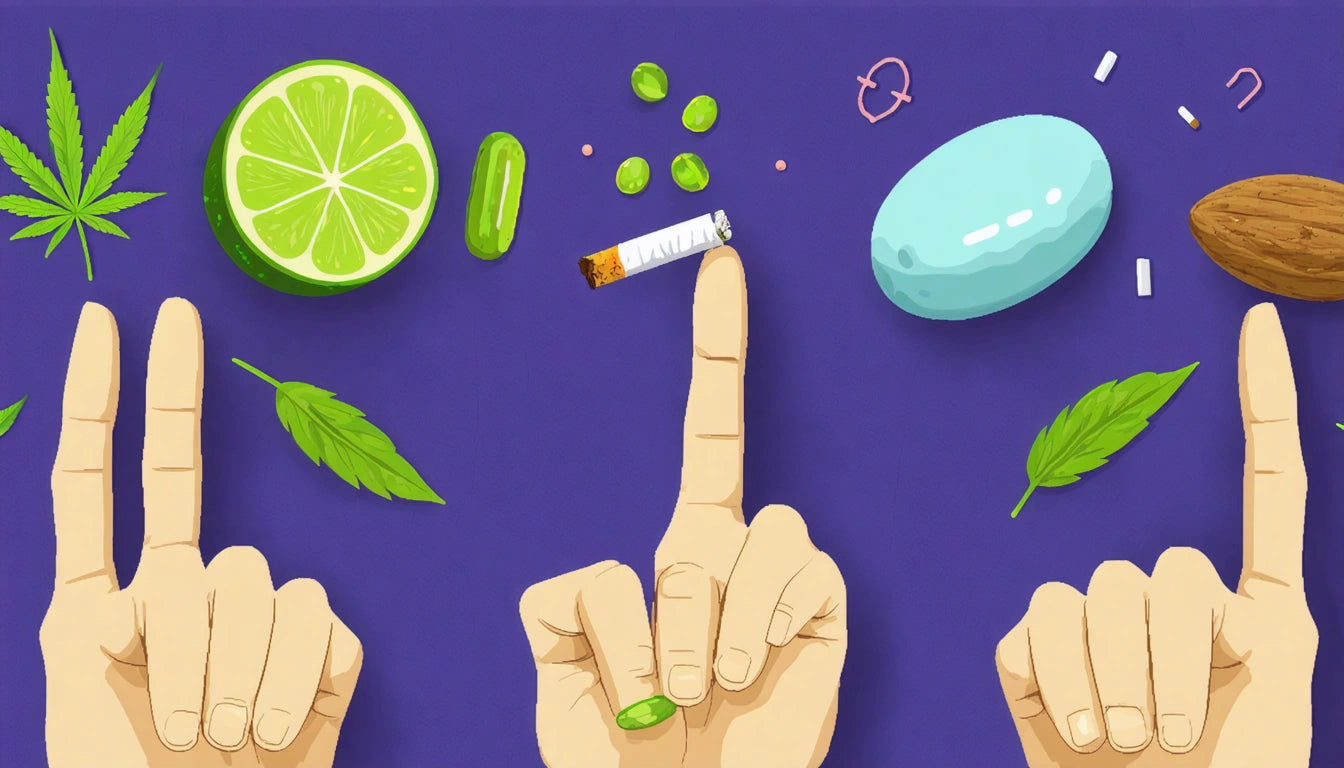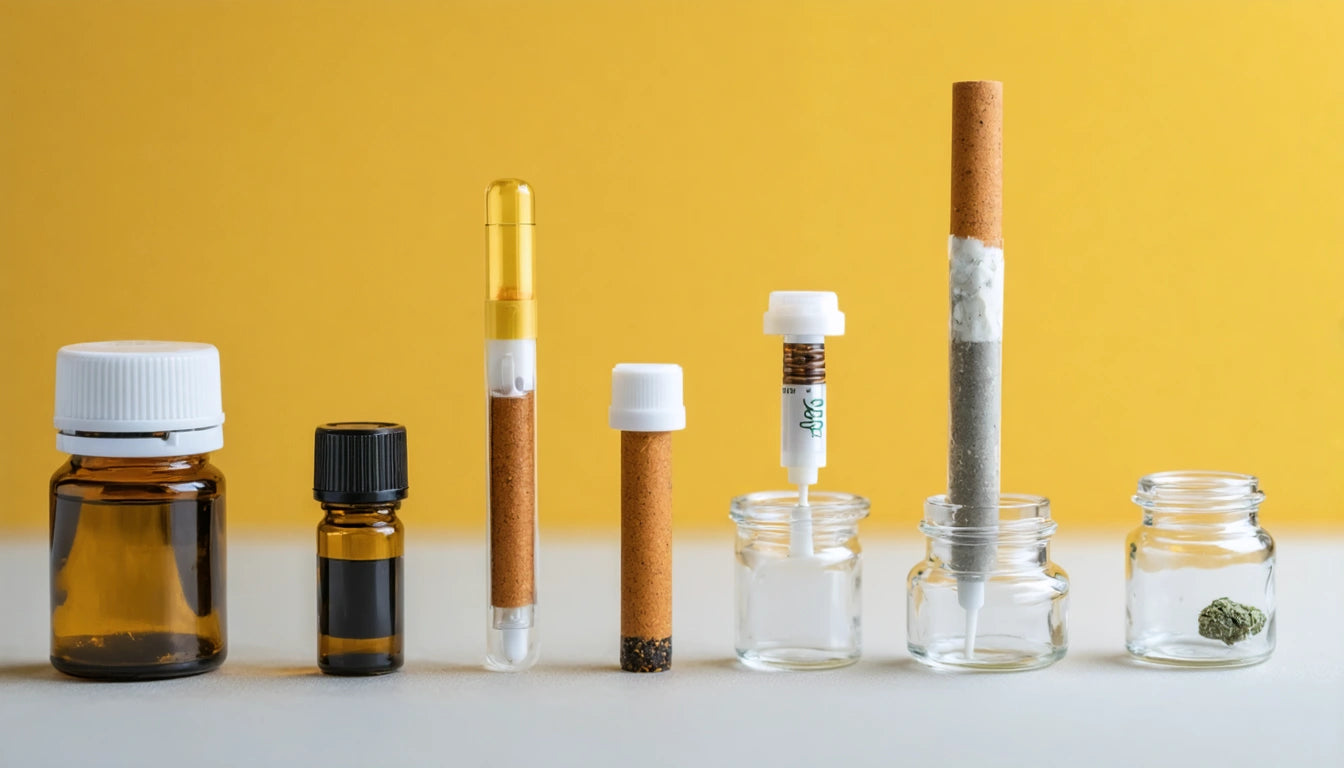Table of Contents
- Initial Withdrawal Timeline: The First Two Weeks
- Physical Recovery Stages After Cannabis Cessation
- Mental Clarity Return: Cognitive Function Restoration
- Sleep Pattern Normalization After Quitting
- Social Adjustment Period Following Cannabis Cessation
- Complete Recovery Expectations: When You'll Feel Fully Normal
How Long Does It Take to Feel Normal After Quitting Weed?
Deciding to stop using cannabis can lead to questions about how long the adjustment period will last. Whether you're taking a tolerance break or quitting permanently, understanding the timeline for returning to baseline helps set realistic expectations. This guide explores what happens in your body and mind as you transition away from regular cannabis use.
Initial Withdrawal Timeline: The First Two Weeks
The first two weeks after quitting cannabis typically present the most noticeable symptoms. This period varies based on consumption frequency, potency preferences, and individual physiology.
Days 1-3: Acute Withdrawal
The initial 72 hours often bring the most intense symptoms:
- Irritability and mood swings
- Headaches
- Reduced appetite
- Intense cravings
- Night sweats
These symptoms peak because THC and its metabolites are still being processed by your body. As detailed in this breakdown of cannabis elimination, THC is fat-soluble and can take considerable time to fully clear your system.
Days 4-7: Diminishing Acute Symptoms
By the end of the first week, many users report:
- Decreased intensity of mood swings
- Improving sleep quality, though still disrupted
- Gradually returning appetite
- Less frequent cravings
This improvement occurs as your endocannabinoid system begins recalibrating to function without external cannabinoids.
Days 8-14: Transition Phase
The second week typically marks a transition toward normalcy:
- Further mood stabilization
- More consistent sleep patterns
- Normalized appetite
- Reduced physical symptoms
Physical Recovery Stages After Cannabis Cessation
Physical recovery follows a relatively predictable pattern for most individuals who stop using cannabis.
Respiratory Improvement
For those who smoked cannabis, respiratory function begins improving within days:
- Reduced coughing and phlegm production (1-2 weeks)
- Improved lung capacity (2-4 weeks)
- Decreased bronchial irritation (1-2 months)
Former smokers often report that their breathing feels clearer after just a few weeks without cannabis. This recovery process can be supported with proper hydration and respiratory care, similar to recommendations for tolerance breaks.
Metabolic Adjustment
Cannabis affects metabolism and appetite regulation through the endocannabinoid system. After quitting:
- Appetite normalization (2-4 weeks)
- Metabolic rate stabilization (1-2 months)
- Weight stabilization (2-3 months)
Some users experience temporary weight fluctuations during this adjustment period as their bodies reestablish natural hunger cues and metabolic patterns.
Mental Clarity Return: Cognitive Function Restoration
Cognitive recovery is often what users are most concerned about when wondering how long after quitting weed to feel normal.
Short-term Memory Improvement
Regular cannabis use can impact short-term memory formation. Recovery typically follows this pattern:
- Initial improvements in recall (2-3 weeks)
- Significant memory function restoration (1-3 months)
- Complete baseline return (3-6 months for heavy users)
The timeline varies significantly based on usage patterns and individual neurochemistry. Those using cannabis storage solutions like quality airtight containers with secure caps might have been consuming fresher, more potent products, potentially extending recovery time.
Focus and Attention Span
Concentration abilities typically follow this recovery pattern:
- Initial improvements in sustained attention (1-2 weeks)
- Noticeable enhancement in focus duration (3-4 weeks)
- Return to baseline concentration (1-3 months)
Many former users report that mental fog begins lifting significantly after the first month of abstinence.
Sleep Pattern Normalization After Quitting
Cannabis affects sleep architecture, particularly REM sleep. When you stop using, sleep disturbances are common but temporary.
REM Rebound Effect
Many experience vivid dreams after quitting due to REM rebound:
- Intense dream periods (begins within days, peaks at 1-2 weeks)
- Gradual dream intensity normalization (3-4 weeks)
- Sleep cycle rebalancing (1-2 months)
This phenomenon occurs because cannabis suppresses REM sleep, and upon cessation, the brain compensates with increased REM activity. According to research on cannabis effects duration, this adjustment period is normal and temporary.
Sleep Quality Improvement
Overall sleep quality follows this general timeline:
- Initial difficulty falling/staying asleep (1-2 weeks)
- Gradual improvement in sleep continuity (2-4 weeks)
- Return to normal sleep patterns (1-3 months)
Social Adjustment Period Following Cannabis Cessation
The social aspects of recovery are equally important when considering what to expect when you stop smoking weed.
Social Circle Adaptation
If cannabis use was central to your social life:
- Initial awkwardness in social settings (immediate)
- Development of new social patterns (1-3 months)
- Comfort in non-cannabis social environments (3-6 months)
Many former users find they need to establish new social routines and sometimes new relationships that don't revolve around cannabis consumption.
Emotional Regulation
Cannabis affects emotional processing and regulation:
- Mood swings and emotional volatility (1-3 weeks)
- Increasing emotional stability (1-2 months)
- New emotional baseline establishment (2-6 months)
Learning to process emotions without cannabis can be challenging but ultimately leads to greater emotional resilience.
Complete Recovery Expectations: When You'll Feel Fully Normal
The question of how long till I feel normal after quitting weed doesn't have a universal answer, but research and user experiences suggest these general timelines:
- Light users (occasional/weekend use): 2-4 weeks for complete return to baseline
- Moderate users (several times weekly): 1-3 months for full normalization
- Heavy users (daily/multiple times daily): 3-6 months for complete recovery
- Long-term heavy users (years of daily use): 6-12 months for full neurological adjustment
Individual factors like metabolism, overall health, age, and concurrent lifestyle changes all influence recovery speed. Understanding cannabis effects longevity helps set realistic expectations for your personal journey.
Recovery isn't always linear. Many experience periods of improvement followed by temporary setbacks. This pattern is normal and doesn't indicate failure in the recovery process. With time and persistence, most former users report feeling completely back to normal and often better than before they started using cannabis.











Leave a comment
All comments are moderated before being published.
This site is protected by hCaptcha and the hCaptcha Privacy Policy and Terms of Service apply.